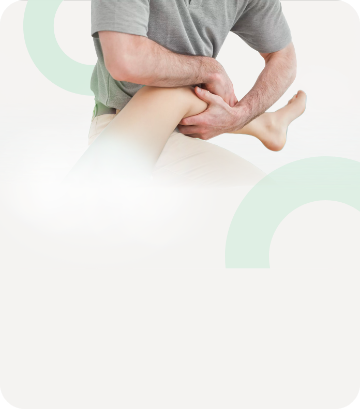3. Bibliography of the chapter on methodism
This page is a collection of bibliographical sources related to the current of thought of Methodism: from John Wesley, founder of Methodism in England, to the most recent publications related to its evolution in the United States of America and beyond.
- Abing K. (2001). Before Bleeding Kansas. Kansas History, 24, 54-71.
- Benecchi V. (2005). John Wesley: l’ottimismo della grazia. Claudiana Editore.
- Bibbia Antonio Martini, Ecclesiastico 38:4.
- Bibbia Antonio Martini, Ecclesiastico 38:1-2.
- Carwardine R. (2000). Methodists, politics, and the coming of the American Civil War. Church history, 69(3), 578-609.
- Cheyne, G. (1753). The Natural Method of Curing the Diseases of the Body: And the Disorders of the Mind Depending on the Body. In Three Parts. Part I. General Reflections on the
- Oeconomy of Nature in Animal Life. Part II. The Means and Methods for Preserving Life and Faculties; and Also Concerning the Nature and Cure of Acute, Contagious, and Cephalic
- Disorders. Part III. Reflections on the Nature and Cure of Particular Chronical Distempers. By George Cheyne, MD Fellow of the Royal Society. Dan. Browne, without Temple Bar; R. Manby, on Ludgate-Hill; J. Whiston and B. White, in Fleet-Street; and A. Strahan, in Cornhill.
- Gevitz N. (2019) The DOs: Osteopathic Medicine in America. 2nd ed. JHU Press.
- Hempton, D. (2005). Methodism: empire of the spirit. Yale University Press.
Hudson, J. B. (2006). Encyclopedia of the underground railroad. McFarland. - Lewis J. (2012) A.T. Still: From the Dry Bone to the Living Man. Blaenau Ffestiniog: Dry Bone Press.
- Maddox, R. L. (2007). John Wesley on holistic health and healing. Methodist History, 46(1), 4-33.
- Maddox, R. L. (1988). John Wesley: Practical Theologian? Wesleyan Theological Journal, 23(1-2), 122-147.
- Mathews, D. G. (2015). Slavery and Methodism. Princeton University Press.
- Morris-Chapman, D. J. P. (2019). John Wesley and Methodist responses to slavery in America. Holiness, 5(1), 37-58.
- Parkes, W. (1992). John Wesley: field preacher. Methodist history, 30(4), 217-235.
- Purifoy, L. M. (1966). The Southern Methodist Church and the Proslavery Argument. The Journal of Southern History, 325-341.
- Richey, R. E., Rowe, K. E., & Schmidt, J. M. (2012). American Methodism: A compact history. Abingdon Press:27-36.
- Taves A. (2007) The Camp Meeting and the Paradoxes of Evngelical Protestant Ritual. In: Bell C. (ed.) Teaching Ritual. The American Academy of Religion. Oxford University Press.
- Tennent, J. (1734). Every Man His Own Doctor, Or, The Poor Planter’s Physician: Prescribing Plain and Easy Means for Persons to Cure Themselves of All, Or Most of the Distempers,
- Incident to this Climate, and with Very Little Charge, the Medicines Being Chiefly of the Growth and Production of this Country. Printing Office of Colonial Williamsburg
- Trowbridge C. (1991). Andrew Taylor Still. The Thomas Jefferson University Press, Northeast Missouri State Univer-sity, Kirksville.
- Wesley, J. (1774). Thoughts upon slavery (No. 11204). R. Hawes.
- Wesley, J. (1747). Primitive physic, or An easy and natural method of curing most diseases London: Thomas Trye.
- Wesley, J., Clark, S., & Baxter, R. (1749). A Christian Library: Consisting of Extracts from and Abridgments of the Choicest Pieces of Practical Divinity, which Have Been Publish’d in the
- English Tongue. In Fifty Volumes. By John Wesley. Bristol: Felix Farley.
- Wesley, J. (1866). Explanatory notes upon the New Testament. Wesleyan Conference Office.
- Wesley, J. (1871). The Desideratum: or, electricity made plain and useful. Baillière, Tindall, and Cox.
- Wesley, J. (2007). A plain account of Christian perfection. Hendrickson Publishers.
- Wigger, J. H. (2001). Taking heaven by storm: Methodism and the rise of popular Christianity in America. University of Illinois Press.

Are you an osteopath?
Register and enjoy the membership benefits. Create your public profile and publish your studies. It's free!
Register now
School or training institution?
Register and enjoy the membership benefits. Create your public profile and publish your studies. It's free!
Register now
Do you want to become an osteopath? Are you a student?
Register and enjoy the membership benefits. Create your public profile and publish your studies. It's free!
Register nowCurrents of thought and major events in America at Still's time
2. The Methodism in America
The impetuous rise of the Methodist faith in the USA, although troubled by internal controversy, spread Christian principles widely throughout the territory, thanks to its itinerant preachers - who rode up to the most remote farms - and to the exciting gatherings during which new believers were converted to this denomination. Abram Still, father of the founder of osteopathy, was an orthodox physician. He became a Methodist pastor and sided with the abolitionist political faction and transmitted to his children the rigor and values of hisconfession.
Read1. Life of John Wesley and the origin of Methodism
The Methodist movement was initiated by John Wesley during the first decades of the eighteenth century in England. He was first an Anglican pastor and later became the English theologian who founded this religious denomination. Wesley introduced rigorous rites of devotion and sound theological principles, arguing that grace could thus be obtained even during earthly life. The doctrine was accompanied by daily practice aimed at doing good deeds, with a focus on the health of the faithful: ministers had to cure not only the soul but also the body of the faithful. To this end, Wesley wrote a small book describing simple medical remedies for everyone.
Read







